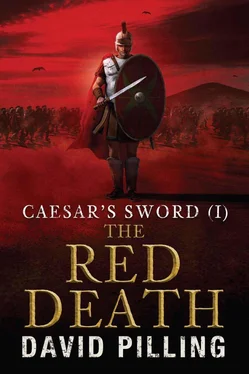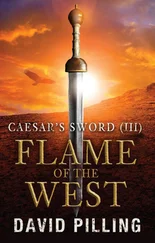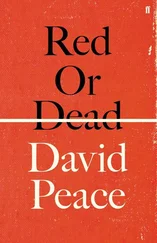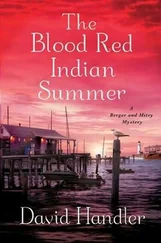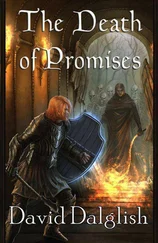David Pilling - The Red Death
Здесь есть возможность читать онлайн «David Pilling - The Red Death» весь текст электронной книги совершенно бесплатно (целиком полную версию без сокращений). В некоторых случаях можно слушать аудио, скачать через торрент в формате fb2 и присутствует краткое содержание. Год выпуска: 2013, Жанр: Исторические приключения, на английском языке. Описание произведения, (предисловие) а так же отзывы посетителей доступны на портале библиотеки ЛибКат.
- Название:The Red Death
- Автор:
- Жанр:
- Год:2013
- ISBN:нет данных
- Рейтинг книги:4 / 5. Голосов: 1
-
Избранное:Добавить в избранное
- Отзывы:
-
Ваша оценка:
- 80
- 1
- 2
- 3
- 4
- 5
The Red Death: краткое содержание, описание и аннотация
Предлагаем к чтению аннотацию, описание, краткое содержание или предисловие (зависит от того, что написал сам автор книги «The Red Death»). Если вы не нашли необходимую информацию о книге — напишите в комментариях, мы постараемся отыскать её.
The Red Death — читать онлайн бесплатно полную книгу (весь текст) целиком
Ниже представлен текст книги, разбитый по страницам. Система сохранения места последней прочитанной страницы, позволяет с удобством читать онлайн бесплатно книгу «The Red Death», без необходимости каждый раз заново искать на чём Вы остановились. Поставьте закладку, и сможете в любой момент перейти на страницу, на которой закончили чтение.
Интервал:
Закладка:
The loss of Caledfwlch, my cherished birthright, felt to me like the loss of a limb. The death of my mother, the moment in which her hand went limp in mine and I realised she had ceased to breathe, temporarily stole away my reason. I sat, numb and lifeless, and cared nothing for what happened to me.
Many years later, when I went back to Domitius’s villa as a man of consequence and made the aged freedman grovel at my feet, I discovered Eliffer’s humble grave and had her exhumed and re-interred with the honour befitting her true station. Until then I had no knowledge of what had been done with her body, for barely an hour after her death the freedman threw me out.
“Now his mother is dead, the boy has no restraining influence,” he said, “I have no time or patience to school the little beast. Let him take his chances on the streets.”
In the absence of Domitius his word was law, and so I was cast out to fend for myself.
For the next three or four years I was little better than an animal, one of the hundreds of homeless street urchins that plagued the city like vermin. They lived off scraps or what they could beg or steal, slept in gutters and doorways and formed groups that I can only compare to dog-packs.
How I survived the first few months of this hellish existence is a mystery to me. My memories of that time are vague and mingled with the deadening pain of the loss of Caledfwlch and my mother. A large portion of my humanity had been stolen away with them, which may have been crucial to my survival. A child reduced to a beast, who is a stranger to fear and despair and most other human weaknesses, concerned only with finding enough food to live through another day, soon learns how to cling to life.
I was not completely lost to human feeling, and made a friend of a fellow savage. I first encountered him in one of the poorest quarters of the city, running for his life from a tribe of slightly older youths whom he had stolen half a loaf of mouldy bread from.
He had a rare turn of speed, which kept him out of their clutches long enough to reach the alley that I was squatting in.
“Out of my way!” he gasped, almost falling over me in his frantic haste. I hugged my knees to let him pass, and picked up the slingshot I had made from a couple of strips of leather. It had saved my skin in one more than one street-fight, and would now do so again.
There was a low wall at the end of the alley, and the brickwork was crumbling and covered with slimy lichen. I could hear the boy sobbing with fear as he tried to climb up it, with no success, while I busied myself loading a jagged stone into my sling.
His pursuers rounded the corner of the alley, a pack of gangly, dirty-faced youths, of the sort I knew well. Their courage was mostly invested in their leader. I picked him out as I whirled the sling. He was the biggest and oldest of them, with a shock of greasy black curls and a terribly hard-faced look for one so young.
What kind of man he might have become was destined to remain a mystery. My stone hit him square in his right eye, pulping the eyeball and penetrating into his brain. He fell like a puppet with its strings cut, and lay jerking in his death-throes on the filthy cobbles. His followers stopped dead, aghast, which gave me time to load another stone.
“Which of you is next?” I cried with a bravura I didn’t feel. There were five or six of them, each a head taller than me and several years older. They could have easily rushed and overpowered me, but not before I had time to loose off one more shot.
Their fragile courage evaporated, and they turned tail and ran. “That’s right, boys, run home to your mothers!” I shouted after them.
I turned to look at the boy they had been chasing. He was crouched at the end of the alley, looking rather shame-faced and trembling like a dog that had just suffered a beating.
“You saved me,” he said, “I behaved like a coward. I am sorry.”
He was short and stocky, and would grow to be a powerfully-built man, assuming he survived that long. I noticed that his fists were swollen and callused with the marks of many fights, and his eyes had the wild, hunted look about them I had come to know well.
“No harm done,” I said, rolling up my sling, “they were only a pack of sheep. Perhaps they will know better than to hunt wolves in future.”
I offered him my hand, the first time I had offered my hand in friendship to anyone, and he warily took it.
“I am Felix,” he said. “You have a strange accent. Are you a foreigner?”
“Yes. I am from Britain. My name is Coel ap Amhar ap Arthur.”
His eyes widened. “More a chant than a name,” he replied with a quick grin. There was a fellow-feeling between us, and from time on we were firm friends.
In the following days Felix told me something of himself. His Roman parents had died in a recent plague, and he had no other family save some distant relatives in Nicomedia who had no interest in his welfare. Thus he had taken to the streets.
Felix and I took care of each other, avoiding the juvenile factions that ruled the underworld of Constantinople, much as the Greens and Blues ruled respectable society. Our backgrounds could not have been more different, but poverty and starvation are great levellers. In many ways he was the brother I never had.
God knows what we might have become in the end – gallows-bait, probably – but we were rescued by the lure of the Hippodrome.
Chapter 6
As the Coliseum was to Rome, so the Hippodrome was to Rome’s heir. I pity those who have never set eyes on that marvellous U-shaped structure next to the Great Palace, big enough to contain over a hundred thousand people in the stands. Here the Romans indulged their undying love for horse and chariot racing, regardless of the disapproval of the Church, which ever desires to curb ‘indecent’ entertainment.
To understand the importance of the Hippodrome, and the influence it exerted over the people of Constantinople, you must first understand something of the factions that ruled the city. I was a member of one of those factions for a time, so they have a double bearing on my story.
The Romans were fiercely partisan in their support for racing teams. The teams were traditionally identified by colour – Reds, Whites, Greens and Blues – and had been imported to Constantinople from Rome. By the time I write of, only the Greens and Blues were still significant. They had become hugely powerful in their own right, and were responsible for staging all forms of public entertainment: not only racing, but athletics, boxing, wrestling, theatre, wild animal displays and gymnastics.
Inevitably, the Greens and the Blues had acquired a political dimension. There was hardly a Roman citizen inside Constantinople that did not belong to one faction or the other, and wore their colours to advertise the fact. The factions were often used as a mouthpiece for public opinion, and would eventually come close to pulling down an Emperor and destroying the city.
That was all in my future, one I could not have imagined during my lost years of running wild in the streets. It was Felix who first suggested that we find work at the Hippodrome. We had barely survived a bad winter and a particularly vicious beating from a butcher we had tried to steal a leg of mutton from, and were nursing our bruises in an alleyway when he raised the idea.
“I have consulted the fates, syntrophos,” he said (this means ‘companion’ in Greek, and was our name for each other). “They tell me our stars are due to rise.”
The ‘fates’ were a group of coloured pebbles that Felix carried in a little drawstring bag. He claimed to be able to read our conjoined futures in them, and to derive meanings from the pattern they formed when he cast them on the ground.
Читать дальшеИнтервал:
Закладка:
Похожие книги на «The Red Death»
Представляем Вашему вниманию похожие книги на «The Red Death» списком для выбора. Мы отобрали схожую по названию и смыслу литературу в надежде предоставить читателям больше вариантов отыскать новые, интересные, ещё непрочитанные произведения.
Обсуждение, отзывы о книге «The Red Death» и просто собственные мнения читателей. Оставьте ваши комментарии, напишите, что Вы думаете о произведении, его смысле или главных героях. Укажите что конкретно понравилось, а что нет, и почему Вы так считаете.
